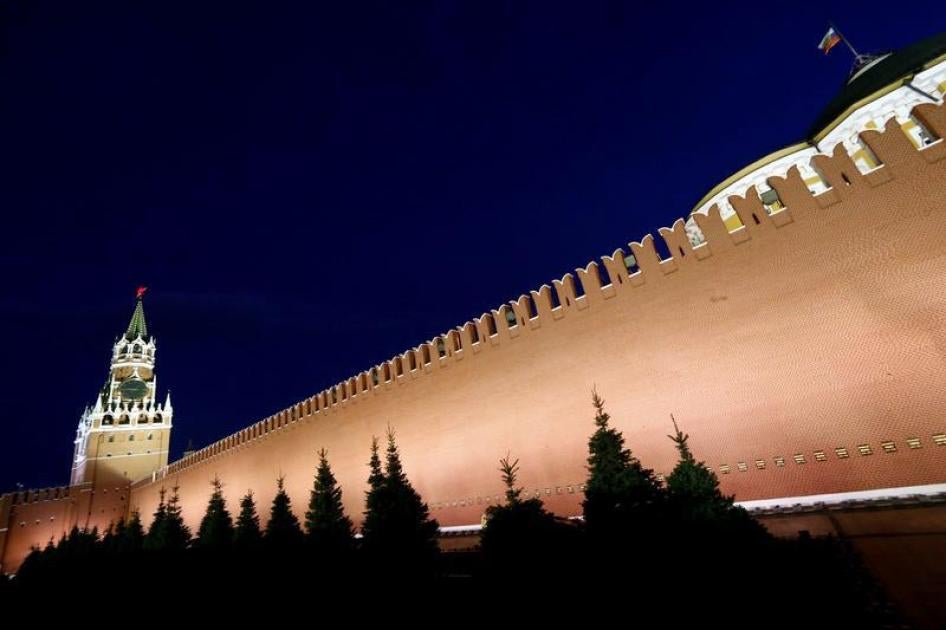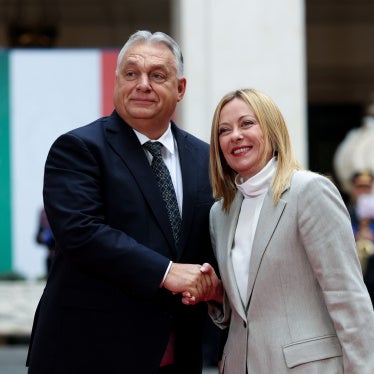Yesterday, Russia’s President Vladimir Putin issued an order to notify the United Nations that Russia was withdrawing its signature from the Rome Statute, the treaty of the International Criminal Court (ICC). Russia never ratified the statute and was not a member of the ICC, so its withdrawal has no practical impact. But the move has symbolic significance, driving home again Russia’s contempt for international efforts to enforce human rights.
The timing was no accident. The day before, the ICC’s Office of the Prosecutor, in its annual report, characterized the armed conflict in eastern Ukraine and Russia’s occupation of Crimea as international armed conflicts to which Russia is a party. The laws of international armed conflict would continue to apply, the report concluded, and the situation in Crimea and Sevastopol amounts to an ongoing state of occupation under those laws. Russia vigorously disputes this. In its statement about the withdrawal, the Foreign Ministry said the court “did not become a truly independent and respected body of international justice.” The Kremlin, it seems, decided to slam the door on the ICC as a result of the prosecutor’s rather straightforward – and accurate – legal analysis.
For several years, Russia has been undermining international human rights machinery, seeking to weaken UN human rights bodies, block UN scrutiny of human rights situations, and reduce the human rights remit of such regional intergovernmental organizations as the Organization for Security and Cooperation in Europe and the Council of Europe. But while Russia is staying in these institutions, it has stormed away from the Rome Statute.
Since Russia wasn’t a member of the court, Russia’s move has no legal bearing on the prosecutor’s ongoing, separate investigation of crimes within the court’s jurisdiction allegedly committed during the 2008 war between Russia and Georgia, which is an ICC member country. While the ICC depends on states to cooperate with its investigations, as a non-member, Russia had not been under any obligation to work with the ICC. Nor would it have much consequence for the court’s authority when it comes to any potential investigation the prosecutor’s office might undertake on eastern Ukraine or Crimea. In fact, earlier this year, after the Georgia investigation opened, Russia announced it would review its position on the ICC.
The consequence is symbolic and historic, of course, because the Kremlin is breaking all ties with the ICC just as the US did in 2002, under the first George W. Bush administration. The ICC has faced political backlash as its cases have increasingly touched on powerful interests opposed to accountability. Russia, as a permanent UN Security Council member, also has an important role when it comes to the referral of situations to the ICC for prosecution. But it has shown its true hand through the exercise of its veto, including to prevent a referral to send crimes in Syria to the court. Most of all, though, it’s yet another opportunity for the Kremlin to assert the primacy of state sovereignty over international institutions and its disregard for international standards.











